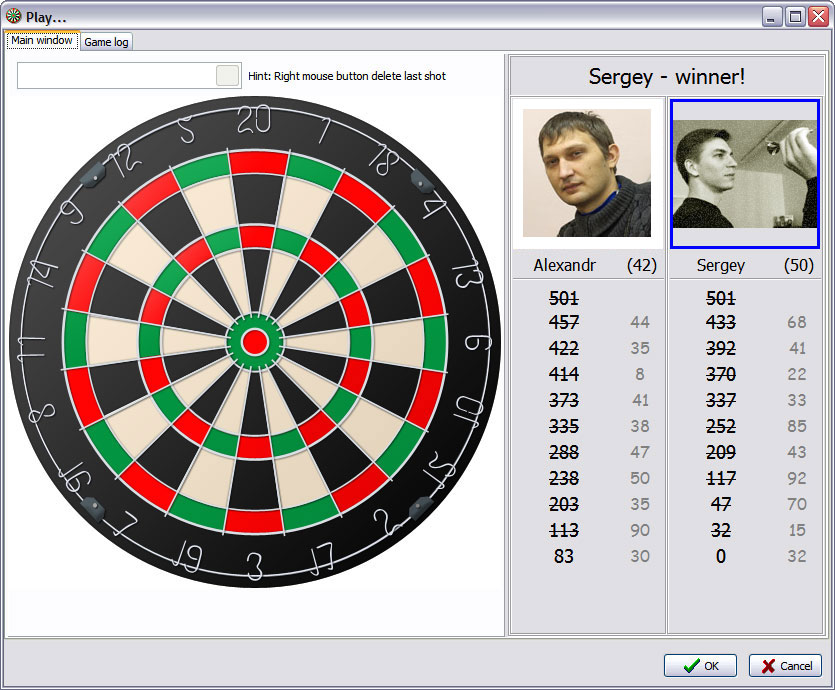There are four different variants of the K-Lite Codec Pack. Ranging from a very small bundle that contains only the most essential decoders to a large and more comprehensive bundle. The global differences between the variants can be found below. Detailed differences can be found on the comparison of abilities and comparison of contents pages.
These codec packs are compatible with Windows Vista/7/8/8.1/10. Old versions also with XP.
The packs include both 32-bit and 64-bit codecs, so they work great on both x86 and x64 variants of Windows!
Basic | Small but extremely powerful! Already contains everything you need to play all common audio and video file formats. Supports playback of:
Provides lots of useful functionality, such as:
Basic does NOT include a player. So you need to use it together with a DirectShow compatible player such as Windows Media Player. For playback issues with WMP please read our F.A.Q. for solutions. We recommend using K-Lite Standard, which included MPC-HC as a player. | |
Standard | Same as Basic, plus:
This is the recommended variant for the average user. Use this if you don't know what you need. It already contains everything that you need for playback. The extra components that are included in the larger versions provide no benefit for the majority of users. | |
Full | Same as Standard, plus:
| |
Mega | Same as Full, plus:
And a few optional extras:
Note 1: Mega does not allow you to play more formats than Full. | |
Update | Additional updates for the latest version of the codec pack. This is not a stand-alone installer. This update requires that the latest version of Basic/Standard/Full/Mega is already installed. | Download Update |
Beta | Beta versions contain the latest updates and improvements, but they may have small bugs, and have not been tested as well as normal releases. Only suitable for experienced users who like to try out the latest stuff and want to provide feedback. Beta versions are available for Basic/Standard/Full/Mega. | |
Old versions | Are you looking for an older version? Those can be found here. If the latest version give you a problem, then please report that to us so we can fix it! | Download Mega Download Basic / Standard / Full |
All Codes For Mayday Roblox
A quick look at SMPlayer. SMPlayer is a free media player for Windows and Linux with built-in codecs that can play virtually all video and audio formats. It doesn't need any external codecs. Just install SMPlayer and you'll be able to play all formats without the hassle to find and install codec packs. Find Your Codecs with Sherlock. A program to give you some useful information about your. Contrary to previous information about 3rd party video codec support changing with the release of macOS Catalina, and the end of 3rd party codec support natively in the macOS, according to an Avid Press Release announced at IBC 2019 last weekend, Avid appear to be suggesting that there will be macOS support for Avid DNxHR and DNxHD codecs. As part of their IBC 2019 coverage Avid. K-Lite Mega Codec Pack includes codecs for the most popular compressions like Divx and Xvid as well as some of the less popular but still necessary codecs. The best K-Lite Codec for Mac – Perian. Perian is one stop codec resource on Mac similar to K-Lite Codec Pack on Windows. Perian is a free, open source, QuickTime component that extends. All in One Media Codec Pack lets you play a variety of media types with one simple program. We were impressed that this program successfully took on the roles of a video viewer, a music player.
We’re all familiar with the concept of codecs. And we’ve probably all run into a problem or two with a codec in the past – a file that works on one computer doesn’t work on another, or works in one app but not another. In fact, codec issues are one of the main reasons we built EditReady.


This post will cover the basics of where codecs live on the Mac, and how you can go about resolving basic codec issues.
Traditionally, all the codecs on a Mac were stored in one folder, /Library/QuickTime. If you’ve got an older Mac OS X install and look in that folder, you’ll probably find all sorts of detritus from codecs of the past – DiVX.component, Perian.component, etc. These components are part of the old “QuickTime 7” framework. If you’re working in Final Cut Pro 7 or another older app, these are the only codecs that matter. This is also the only type of codec that can be developed by third parties.

Starting with Mac OS X 10.6 (“Snow Leopard”) Apple introduced a new set of media technologies – AVFoundation, CoreMediaIO, and others. These modern media frameworks don’t use the older components, and instead introduced a separate set of video codecs. You’ll find these in /Library/Video and /System/Library/Video (And often in subfolders from there).
Apple hasn’t opened this technology up to third parties, so only Apple can create these types of codecs. Macs come with some codecs preinstalled (like Apple ProRes) but others are only available as part of the Apple “Pro” apps like Final Cut Pro X. The most important of these, in terms of working with video on a Mac, is probably the AVC Intra codec, since AVC Intra is used by many modern cameras (like many XAVC cameras).
We’ve seen a number of issues related to these modern codecs. First off, some users simply end up with corrupt or missing copies. This can be due to a bad update, or an overly aggressive “cleaner” application on your Mac. If you previously had the codecs and suddenly they’re gone, you can reinstall from the Apple Pro Video Formats download.
Video Codecs For Mac
As we prepare for the impending release of Mac OS X 10.11 (“El Capitan”), many users will choose to do a full reinstall instead of just updating. This can lead to confusion because codecs will be missing after the update.
Mp4 Codec Mac
If you don’t have the codecs at all, an easy way to get them is by installed the Final Cut Pro X trial. Alternatively, you can find instructions online for installing them manually.
